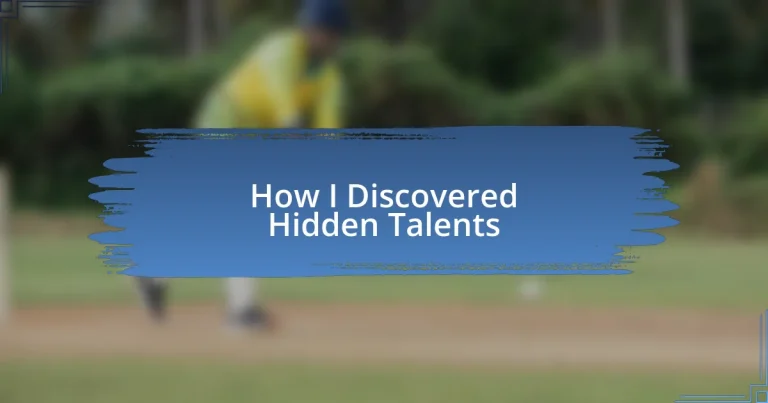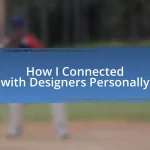Key takeaways:
- Hidden talents often emerge unexpectedly through self-discovery and exploration of hobbies.
- Self-awareness and seeking feedback can significantly enhance one’s understanding of personal strengths and abilities.
- Journaling experiences provides insights into passions and can lead to the discovery of new talents.
- Building confidence requires practice, celebrating small achievements, and embracing the learning process.
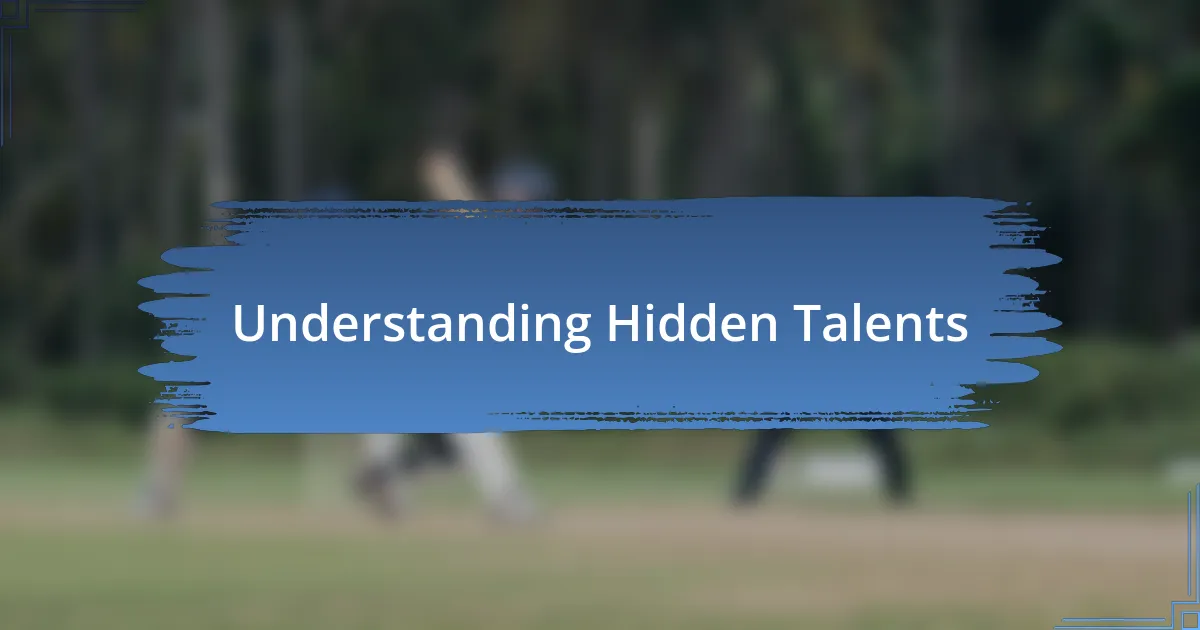
Understanding Hidden Talents
Hidden talents often lie beneath the surface, waiting for the right moment to reveal themselves. I remember, during a mundane day at work, I absentmindedly sketched a landscape during my lunch break. It surprised me how much joy I felt in that moment—was that creativity hiding inside me all along?
Many people believe they must excel in traditional skills to be considered talented, but hidden talents often defy those expectations. I once met an accountant who had a remarkable gift for poetry; it took years for him to share that side. What if we approached our hobbies and interests with an open mind, ready to uncover those buried skills that could enrich our lives?
It’s fascinating to think of how our environment and experiences shape our understanding of talent. I found my love for cooking unexpectedly while experimenting with leftover ingredients one evening. How often do we dismiss our quirky interests, not realizing they might be the keys to unlocking hidden abilities?
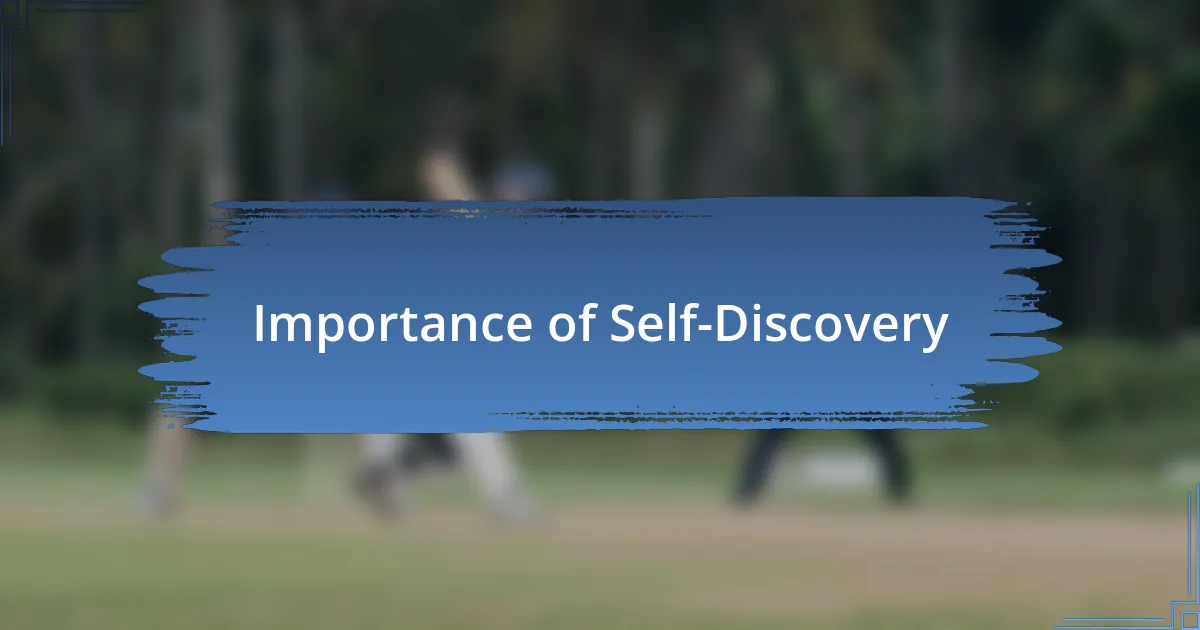
Importance of Self-Discovery
Discovering our hidden talents is an essential journey in life. Self-discovery allows us to reflect on our passions and skills, leading to more fulfilling personal and professional experiences. I remember stumbling upon my knack for public speaking during a friend’s presentation at school; I felt an exhilarating rush as I shared my thoughts. That moment pushed me to explore similar opportunities, revealing layers of confidence I never realized existed.
Here are a few reasons why self-discovery matters:
- Enhances Self-Awareness: Knowing our strengths and weaknesses helps us make more informed choices.
- Boosts Confidence: Recognizing unexpected skills can empower us to venture beyond comfort zones.
- Encourages Lifelong Learning: A curiosity-driven mindset can lead to constant improvement in various aspects of life.
- Creates Opportunities: Uncovering hidden talents can open doors to new hobbies or career paths, enriching our lives.
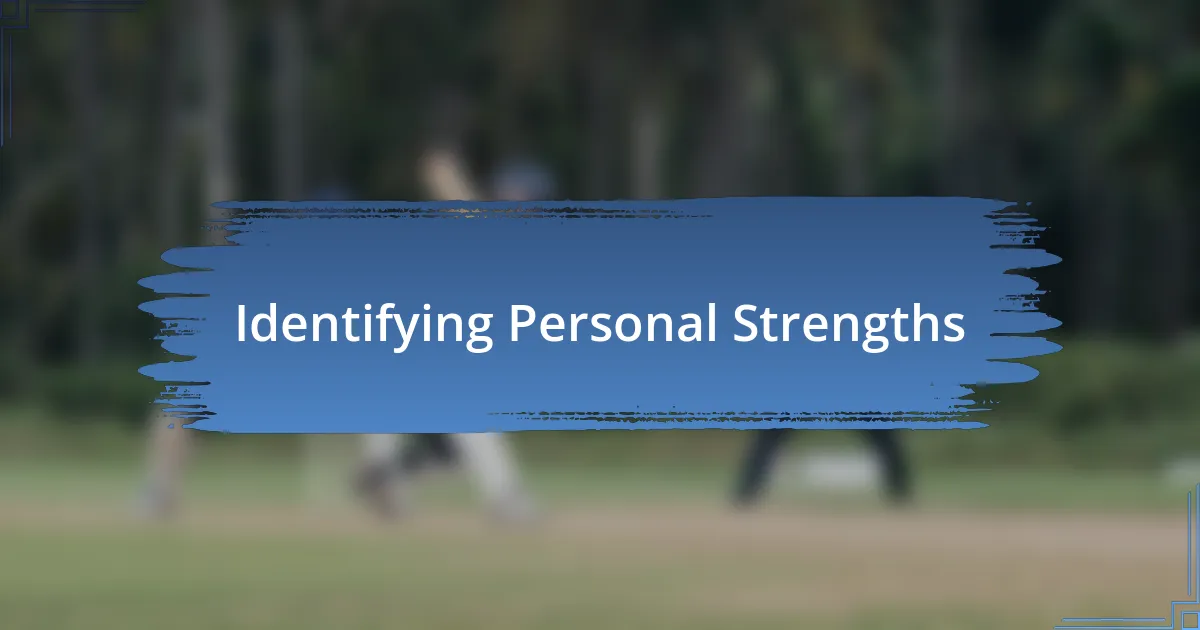
Identifying Personal Strengths
Identifying personal strengths often starts with self-reflection. I remember a time when I took a personality assessment, and the results surprised me. It revealed that I excelled in creative problem-solving, something I never recognized in myself. This insight was like a light bulb moment; it encouraged me to seek out projects that allowed me to utilize that talent, ultimately leading to more fulfilling work experiences.
It’s also valuable to seek feedback from others. I once asked friends and colleagues to share what they thought I was good at. Their responses were eye-opening! They pointed out my ability to connect with people and foster teamwork, which I had taken for granted. This exercise not only reaffirmed my strengths but also helped me see how others perceive me, giving me a clearer picture of my skills.
In addition, keeping a journal can be a powerful tool in this discovery process. I began writing down activities that brought me joy and engagement. Through this practice, I identified a passion for storytelling that I hadn’t fully embraced. This habit not only boosted my awareness but also inspired me to pursue writing as a hobby, transforming it into a potential career path.
| Method | Description |
|---|---|
| Self-Reflection | Assessing personal skills through introspection and assessments. |
| Feedback from Others | Gaining insights from friends or colleagues about perceived strengths. |
| Journaling | Documenting activities and feelings to identify passions and strengths. |
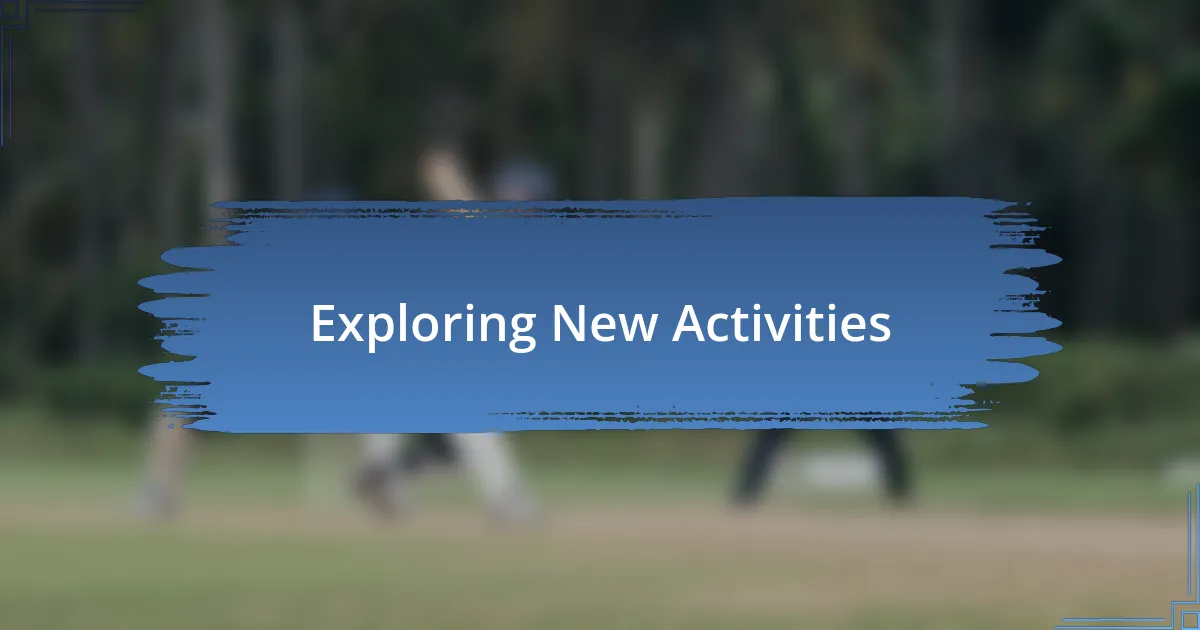
Exploring New Activities
Trying out new activities can lead to surprising discoveries about ourselves. I vividly remember the first time I joined a pottery class. At first, I felt completely out of my element, but as I worked the clay, a strange sense of calm washed over me. What started as a simple quest for an enjoyable weekend turned into a therapeutic outlet that revealed my artistic side.
Diving into unfamiliar experiences can sometimes feel daunting. Have you ever hesitated to join a group just because you were unsure of your abilities? I felt that way before my first dance class. Yet, once I stepped onto the floor, I realized that the joy of movement and rhythm was liberating. It was a lesson in embracing vulnerability, reminding me that exploration often thrives outside of our comfort zones.
Moreover, engaging in new hobbies encourages creativity in unexpected ways. I took a cooking workshop one summer, thinking it would just be a fun afternoon. To my surprise, I discovered a knack for flavor combinations and presentation. This culinary escapade not only enhanced my skillset but also rekindled my love for sharing meals with friends. It’s fascinating how a simple activity can unlock hidden passions just waiting to be explored.
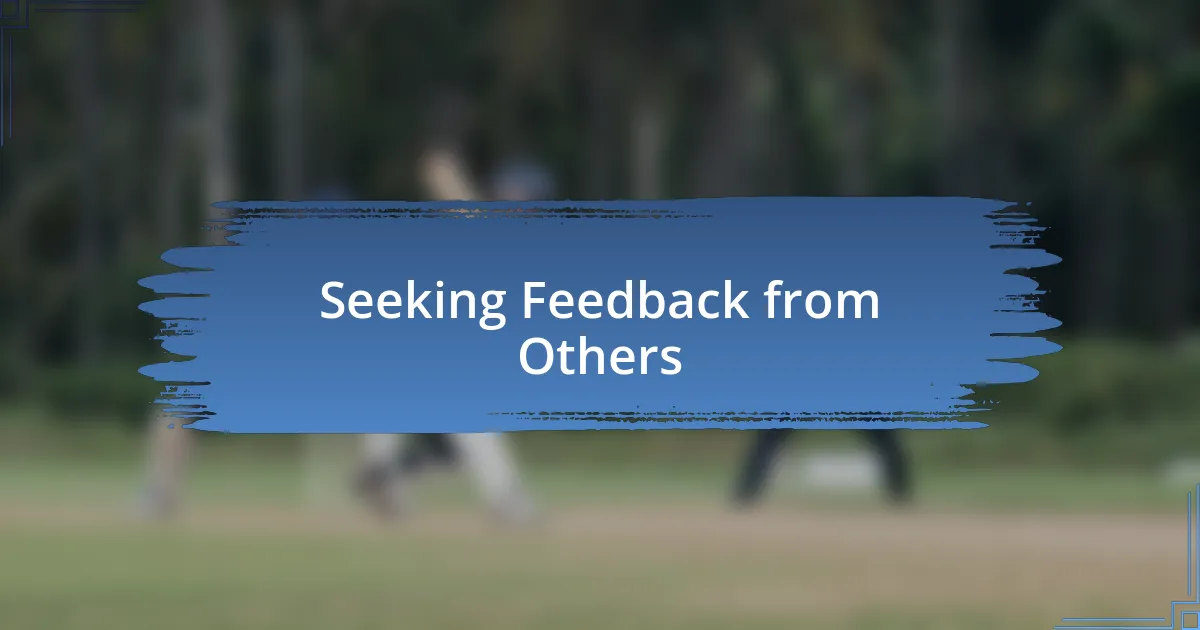
Seeking Feedback from Others
Seeking feedback from others is a powerful way to uncover hidden talents. I distinctly remember asking a colleague for her thoughts after I presented a project at work. She shared not only what she enjoyed but also suggested areas where I could improve, which opened my eyes to skills I hadn’t recognized in myself before. It’s amazing how an outside perspective can shine a light on abilities we often overlook.
When I began volunteering for a community theater, I was hesitant to ask for feedback on my acting. However, after a performance, a fellow actor approached me and praised my emotional range. Her encouragement spurred me to experiment more with my character, igniting a passion I didn’t know I had. Isn’t it remarkable how one person’s insight can inspire us to explore further?
Feedback can sometimes feel intimidating, but it’s essential for growth. I remember feeling anxious before sharing my writing with a close friend, but her constructive criticism not only made my piece stronger but also helped me realize my voice had power. Have you ever been surprised by someone’s praise or critique? Those moments can be pivotal in recognizing our unique strengths.
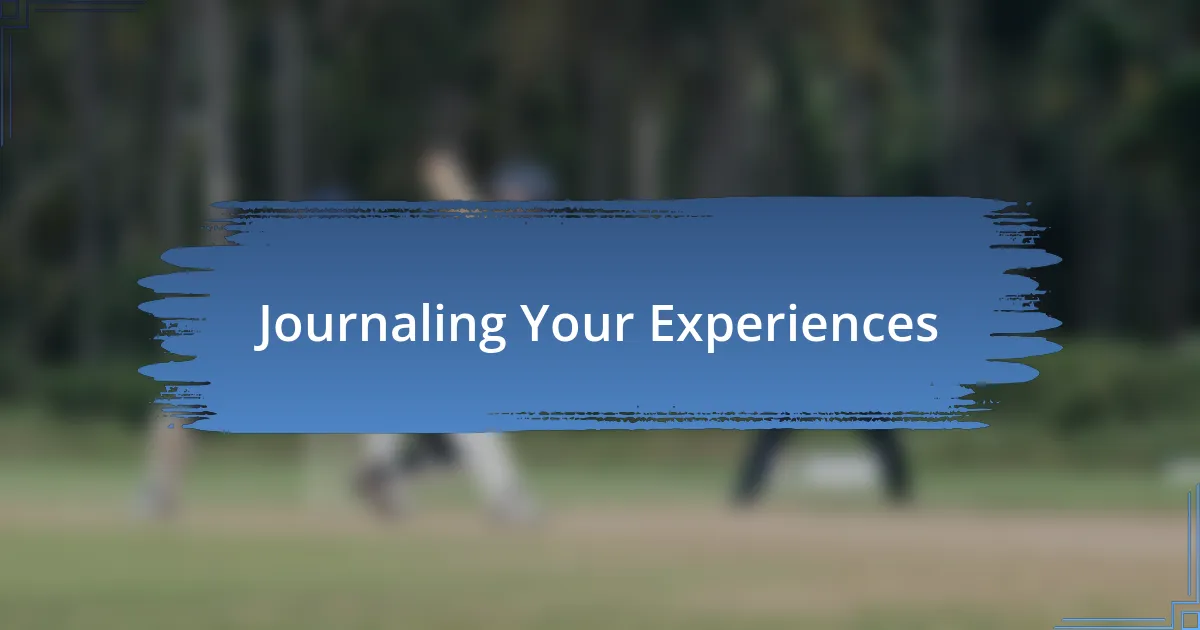
Journaling Your Experiences
Journaling your experiences can be a transformative practice for uncovering hidden talents. I recall starting a journal during a particularly tumultuous time in my life. As I scribbled down my thoughts and feelings, I began to notice patterns in my writing that revealed a knack for storytelling, something I had never fully embraced before. What if your daily reflections could lead you to a talent you didn’t even know existed?
As I wrote more consistently, it became a safe space to explore new ideas and projects. One day, while writing about a challenging situation at work, I unintentionally crafted a narrative that felt vibrant and alive. Reading it back, I realized that immersing myself in this creative outlet allowed me to tap into my imaginative side. Have you ever stumbled upon a skill while simply jotting down your thoughts?
What struck me most was how journaling provided clarity on my passions. I could look back and identify what excited me across different periods of my life. This insight encouraged me to pursue activities that aligned with those feelings. If you haven’t tried journaling yet, why not start today? You might just find yourself uncovering something truly special.
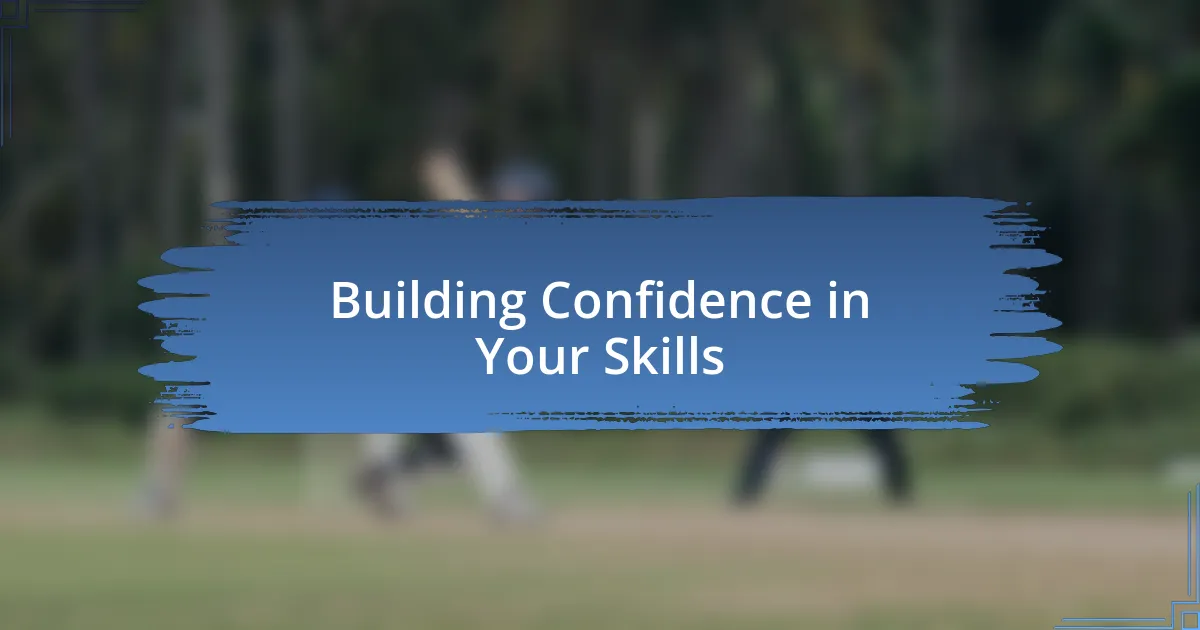
Building Confidence in Your Skills
Building confidence in your skills is a journey, often rooted in self-discovery. I remember the first time I attempted a public speaking event—my heart raced and my palms were sweaty. However, as I prepared and practiced, each session chipped away at my anxiety, revealing a budding ability to connect with an audience. Have you noticed how practice can transform fear into familiarity?
Through continuous engagement with my skills, I found that celebrating small achievements played a crucial role in bolstering my confidence. After finishing a challenging piece of artwork, I shared it with friends, who responded with enthusiastic feedback. That positive reinforcement made me realize that every step forward, no matter how minor, was a building block for my confidence. Could it be that sharing your progress with others might strengthen your belief in yourself?
It’s essential to embrace the learning process and recognize that growth isn’t always linear. There were times when I felt stagnant, wondering whether I was truly improving. But reflecting on my progress over time helped me understand that setbacks are part of any skill development journey. Have you taken the time to appreciate how far you’ve come, even when the path seems rocky?
